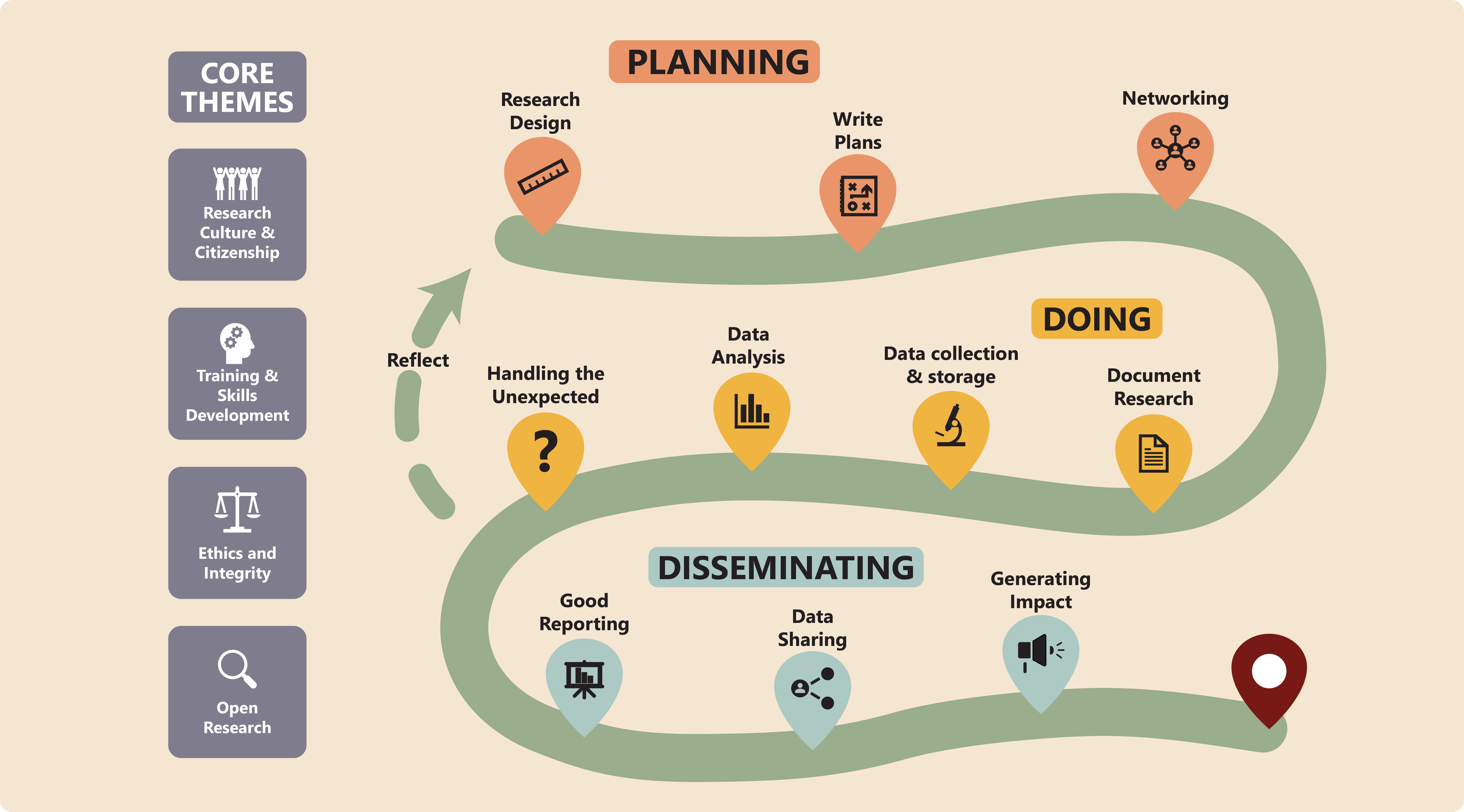Document Research

Documenting your research thoroughly enables yourself and others to keep track of what has been done at any point, and later to verify and replicate your work.
-
Think about the types of information you’ll need to record ahead of time e.g. ideas and plans, information about methods, recording experiments, recording results, recording how data were analysed, discussions with supervisors and collaborators.
-
Document everything related to the data itself, about how it was collected, any data analysis done, and carefully store study metadata (see data collection and storage section below).
-
Learn about University policies around research data.
-
For more complex projects, attend training around research data management.
-
Consider lab book formats and decide on a format/template with your research group and supervisors (e.g. electronic lab notebooks like Rspace). For multiple people working on the same project, having a universal system may be beneficial.
-
Write a data management plan (e.g. using DMPonline) (see “prepare a data management plan” in the write plans section above).
-
Learn about the importance of documenting data and learn more formal organisational techniques, e.g. adhering to metadata standards and preparing data dictionaries.
-
What strategies can you use to improve the documentation of your project?
- DMP templates for postgraduate research projects
- Advice on file naming (Data carpentries)
- University guidance on file naming conventions
- “How do you record your research?” (University of Oxford)
- “Electronic lab notebooks” (Harvard)
- “How to make a data dictionary” (OSF support)
- FAIRsharing metadata standards
- “Ten reproducible research things” – advice on data quality, backups, documentation etc.